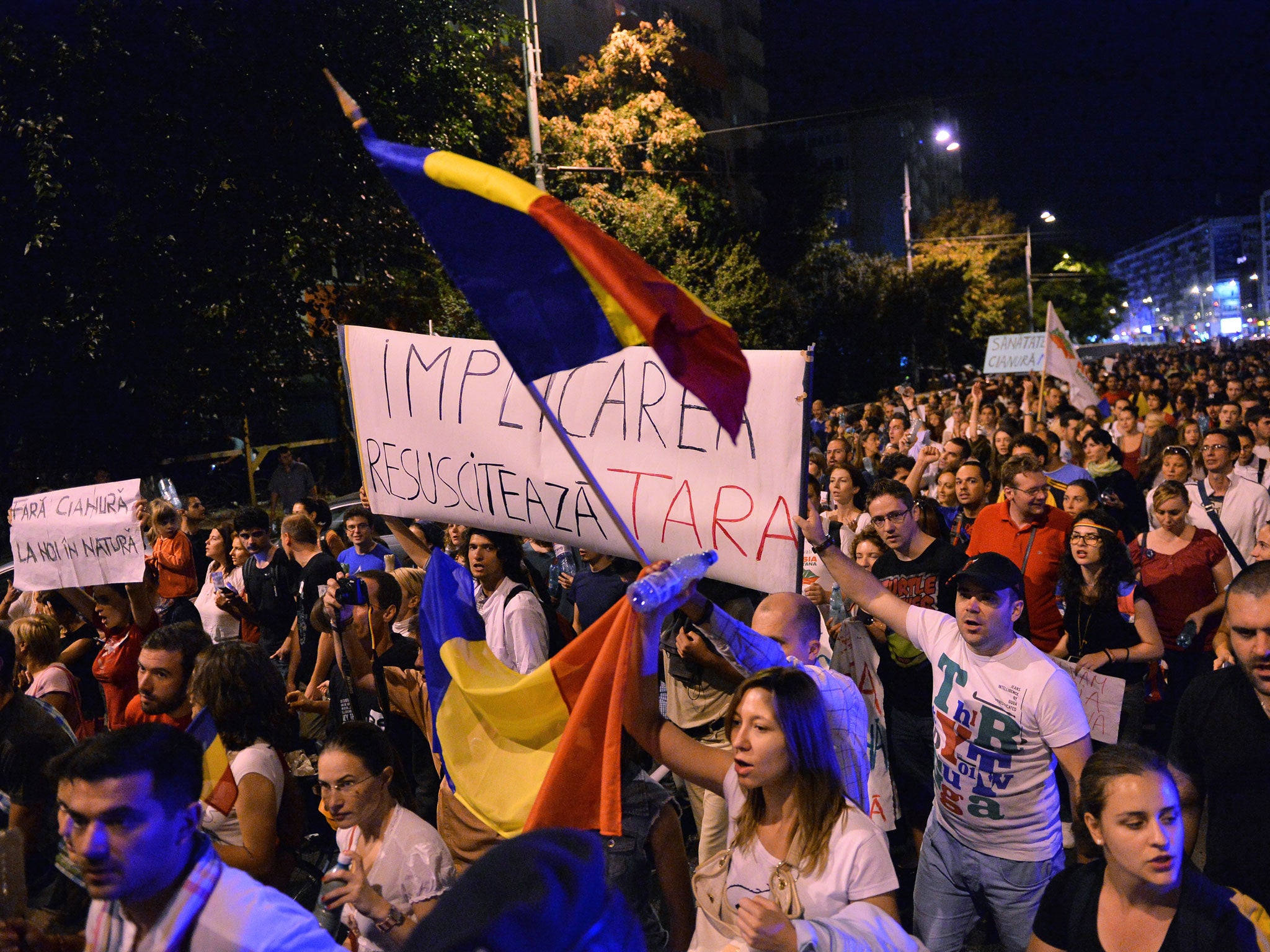Romanian gold rush cancelled as protesters defeat Europe's biggest mine
Plan to blast Transylvanian mountains dropped despite promise of billions

Romania’s Prime Minister has conceded that his efforts to end a 14-year deadlock and open Europe’s biggest goldmine were likely to fail, after the project provoked nationwide protests against the use of cyanide in the Transylvanian mountains.
The government had argued that the project – by the Canadian mining company, Gabriel Resources – could bring billions in revenue to one of the EU’s poorest countries. But they faced outrage from environmentalists and a public wary of the mining industry after a 2000 cyanide spill at a Romanian gold mine released toxic mud and water into three countries.
Gabriel Resources had first raised the possibility of blasting open four mountains to create the gold and silver mine in the late 1990s, but plans had been thwarted by vocal opposition.
The Leftist Prime Minister, Victor Ponta, was also initially hostile to the new mine, but reconsidered after renegotiating the state’s royalties from 4 per cent to 6 per cent.
In late August he announced that a draft bill would be presented to parliament, prompting nine days of escalating protests which peaked on Sunday when up to 15,000 people packed city centres.
“Basically, today we must rapidly begin the rejection proceedings in the senate, then in the lower house, and that’s it,” Mr Ponta said, after a coalition partner earlier announced that they could not support the project. “It’s very clear a decision was taken.”
Thousands of protesters had gathered on Sunday in Bucharest and the city of Cluj near the planned mine, carrying banners reading: “Gold is not the answer”. Protesters cautioned of lasting environmental damage if the company was allowed to go ahead with the open pit mine at Rosia Montana.
“Rosia Montana is part of our national heritage,” Anca Cojocaru, 34, told the Romania Insider website. “I want my daughter to have a country where culture and nature are not destroyed.”
But thousands had also turned out to support the project, with many hoping that the investment would bring employment and prosperity to a deprived area in the second poorest country in the European Union. With the mountains holding an estimated 300 tons of gold and 1,600 tons of silver, the government and the mining company forecast potential revenue of up to £1.5bn for the state in taxes, as well as £1.8bn in services and jobs.
As Europe struggles with slow economic growth, Romania is not the only country considering turning to its natural resources to try and boost income. Greece – which is implementing the harshest austerity programme in Europe – is facing a similar battle over a goldmine. Both Italy and Spain have approved controversial oil projects to try and raise revenue. But environmental activists are urging a longer-term view.
In Rosia Montana, opponents warned that blasting into the four mountains would wipe out three villages and destroy Roman sites.
It was the cyanide, however, that worried people the most. The spill in 2000 at the town of Baia Mare killed thousands of fish in Romania, Hungary and Serbia and is considered Europe’s worst environmental accident since the Chernobyl disaster in 1986.
Prime Minister Ponta said on Monday he would look into alternatives to boost income in the deprived Rosia Montana area.
Gabriel Resources, meanwhile, is said to be considering legal action.
Join our commenting forum
Join thought-provoking conversations, follow other Independent readers and see their replies
0Comments